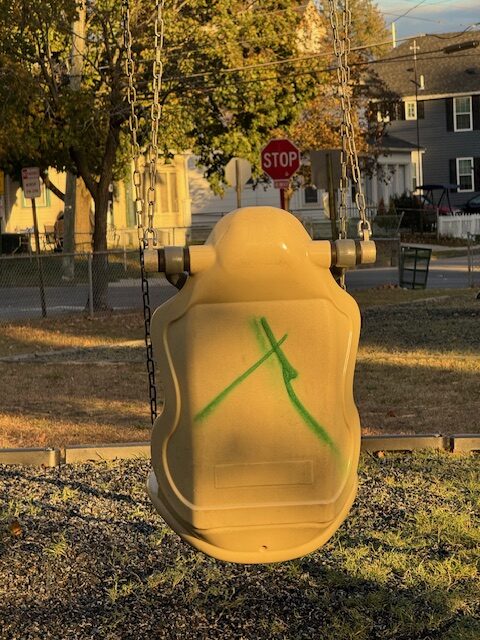(Washington, DC)
– Judicial Watch announced it received
676 pages
of records from the National Institutes of Health (NIH) showing that the agency paid thousands of dollars to a California-based firm to purchase organs from aborted human fetuses to create “
humanized mice
” for HIV research.
The records show that NIH paid at least $18,100 between December 2016 and August 2018 to Advanced Bioscience Resources (ABR) for livers and thymuses from second trimester aborted fetuses. They include at least 26 such purchases from ABR by Dr. Kim Hasenkrug,
senior investigator
at the
NIH lab
in Hamilton, Montana.
Purchase orders associated with the transactions state: “These tissues, liver and thymus, are required [by] Ron Messer for ongoing studies of HIV in the Hasenkrug Lab. Our mice will be ready for reconstitution soon.”
Beginning with a December 21, 2016, payment to ABR and running through April 2018, the records show that a fetal liver and thymus set costs $680, and payment was due upon receipt. On May 23, 2018, the cost increased to $750.
The records also include “Tissue Acquisition Invoices” and sales receipts issued by ABR. Payment was made by credit card.
Judicial Watch received the records through a March 2019
lawsuit
against the Department of Health and Human Services for all contracts and related documentation between the FDA and Advanced Bioscience Resources (ABR) for the provision of human fetal tissue to be used in humanized mice research (
Judicial Watch v. U.S. Department Health and Human Services
(No. 1:19-cv-00876)).
ABR has been the subject of
criminal referrals
from House and Senate committees investigating whether Planned Parenthood or any other entity was illegally profiting from the handling of fetal tissue from aborted babies.
Federal
law
regulates the purchase and acceptance of human fetal tissue for research purposes. It is unlawful to knowingly transfer fetal tissue for profit. According to the records, agency officials concluded in March 2018 that: “Federal regulations for the protection of human subjects do not apply to above named activity.”
The records include a November 2009 “
Request for Review of Research
Activity Involving Human Subjects” with the protocol title “Study of HIV infection and vaccine protection in mice reconstituted with a human immune system” that describes the development of a “cohort” of humanized mice using human fetal tissue:
Recent reports have demonstrated that immunodeficient mice reconstituted with 17-19 week old human fetal tissue develop a human immune system and are susceptible to HIV infection and disease. The goal of this project proposal is to create such humanized mice to study the role of immune cell subsets and virus-neutralizing antibodies in vaccine protection. The experiments will entail the development of a cohort of mice all reconstituted with the same human cells so as to be histocompatible. This will require transplantation of the mice with 1 mm
3
pieces of fetal thymus as well as reconstitution with stem cells isolated from cord blood and liver. Once the humanized mice have been established some will be vaccinated to prime distinct subsets of immune cells. Immune cell subsets from vaccinated mice will be adoptively transferred into naive mice, which will then be infected with HIV to test the antiviral activity of the immune cells. The goal of these experiments is to establish correlates of immunity against HIV.
In an “
Overview
” provided by Advanced Bioscience Resources, the firm describes itself as a “non-profit corporate foundation” which is “devoted to providing services in connection with the procurement of human organs and tissues for medical and scientific research.”
In Hasenkrug’s November 2009 “
Request for Review of Research
Activity Involving Human Subjects” he is asked: “Where are the subjects of this research activity located?” Hasenkrug answers: “The material for this research is obtained from natural or induced abortions from females in California.” Another question is: “Has the research activity that you are proposing in this form been approved by an Institutional Review Board (IRB) elsewhere?” Hasenkrug answers: “No IRB review of the research activity … has taken place.”
The records include a November 2009
email
from the deputy director of the Office of Human Subject Research (OHSR) in Bethesda, MD, to Hasenkrug at the NIH lab, approving his research project and instructing him: “Provide documentation that you will not seek the identity of the subjects who have provided the samples you will receive as well as documentation from ABR that under no circumstances will the identity or link to the identifiers of the subjects be released to you.” The signature block concluding the email includes the phrase: “The NIH is committed to maintaining the highest stands for the protection of human subjects.”
The Advanced Bioscience Resources’ “Tissue Acquisition Invoices” show:
On December 21, 2016, NIH’s Rocky Mountain Labs was
billed $680
for a second trimester thymus and liver, which were paid for by credit card on January 10, 2017. The “justification” states: “These tissues, liver and thymus, are required [by] Ron Messer for ongoing studies of HIV in Hasenkrug Lab. Our mice will be ready for reconstitution soon.”
On January 25, 2017, NIH’s Rocky Mountain Labs was
billed $680
for a second trimester thymus and liver, which were paid for by Visa card in February 2017.
On February 8, 2017, NIH’s Rocky Mountain Labs was
billed $680
for a second trimester thymus and liver, which were paid for by Visa card on February 15, 2017.
On March 9, 2017, NIH’s Rocky Mountain Labs was
billed $680
for a second trimester thymus and liver, which were paid for by Visa card on March 24, 2017.
On March 30, 2017, ABR provided a second trimester thymus and liver to Hasenkrug’s lab at no charge due to a “delivery delay.” The parts were needed by March 17, 2017 and NIH’s Rocky Mountain Labs was to have been
charged $680
but the parts weren’t delivered until April 19, 2017.
On April 20, 2017, NIH’s Rocky Mountain Labs was
billed $680
for a second trimester thymus and liver, which were paid for by Visa card in May 2017.
On May 17, 2017, NIH’s Rocky Mountain Labs was
billed $680
for a second trimester thymus and liver, which were paid for by Visa card on May 19, 2017.
On June 28, 2017, NIH’s Rocky Mountain Labs was
billed $680
for a second trimester thymus and liver, which were received on May 30, 2017.
On July 5, 2017, a redacted NIH employee placed an order for a second trimester liver and thymus on behalf of Ron Messer. NIH redacted the price from the email, citing confidential commercial information. However, the $680 price is included in the
purchase order
. The tissues were delivered on August 21, 2017.
On August 10, 2017, NIH’s Rocky Mountain Labs was
billed $680
for a second trimester thymus and liver, which were paid for by Visa card in September 2017.
On August 24, 2017, NIH’s Rocky Mountain Labs was
billed $680
for a second trimester thymus and liver, which were paid for by Visa card in September 2017.
On September 21, 2017, NIH’s Rocky Mountain Labs was
billed $680
for a second trimester thymus and liver, which were paid for by Visa card in October 2017.
On October 5, 2017, NIH’s Rocky Mountain Labs was
billed $680
for a second trimester thymus and liver, which were paid for by Visa card on October 24, 2017.
On October 26, 2017, NIH’s Rocky Mountain Labs was
billed $680
for a second trimester thymus and liver, which were paid for by Visa card in November 2017.
On December 13, 2017, NIH’s Rocky Mountain Labs was
billed $680
for a second trimester thymus and liver, which were paid for by credit card on December 22, 2017.
On January 3, 2018, NIH’s Rocky Mountain Labs was
billed $680
for a second trimester thymus and liver, which were paid for by Visa card on January 11, 2018.
On January 25, 2018, NIH’s Rocky Mountain Labs was
billed $680
for a second trimester thymus and liver, which were paid for by Visa card on January 30, 2018.
On February 7, 2018, NIH’s Rocky Mountain Labs was
billed $680
for a second trimester thymus and liver, which were paid for by Visa card on February 16, 2018.
On March 1, 2018, NIH’s Rocky Mountain Labs was
billed $680
for a second trimester thymus and liver, which were paid for by Visa card on March 16, 2018.
April 4, 2018, NIH’s Rocky Mountain Labs was
billed $680
for a second trimester thymus and liver, which were paid for by Visa card on April 18, 2018.
On May 23, 2018, NIH’s Rocky Mountain Labs was
billed $750
for a second trimester thymus and liver, which were paid for by Visa card in June 2018.
On May 31, 2018, NIH’s Rocky Mountain Labs was
billed $750
for a second trimester thymus and liver, which were paid for by Visa card on June 26, 2018.
On June 27, 2018, NIH’s Rocky Mountain Labs was
billed $750
for a second trimester thymus and liver, which were paid for by credit card and delivered on July 10, 2018.
On August 15, 2018, NIH’s Rocky Mountain Labs was
billed $750
for a second trimester thymus and liver, which were paid for by Visa and delivered on August 23, 2018.
On August 10, 2018, NIH’s Rocky Mountain Labs ordered a second trimester liver and thymus and
paid $750
by credit card. They were to be delivered on September 10, 2018.
On September 6, 2018, NIH’s Rocky Mountain Labs was
billed $750
for a second trimester liver and thymus, which was paid for by Visa on September 14, 2018.
“These records detailing the federal government’s purchases of organs of aborted fetuses are the most disturbing I’ve ever seen in all my time at Judicial Watch,” said Judicial Watch President Tom Fitton. “Every responsible official in government – from President Trump to HHS Secretary Azar should investigate and stop the trafficking of organs of aborted unborn human beings for taxpayer-funded Frankenstein-type experimentation.”





